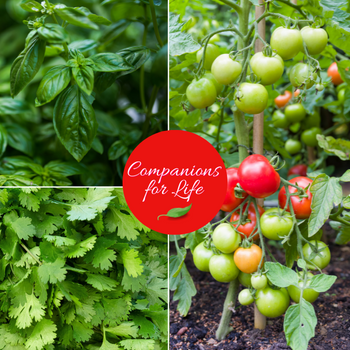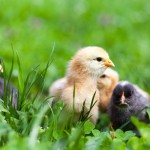When two plants are grown together or near one another for the benefit of one or both of the plants.
Like us, plants can benefit from having a friend or two and, while there is little evidence that some plants are bad for others, there is a heap of evidence showing that certain combinations lead to healthier plants, more bountiful crops, and improved soil conditions.
Companion planting dates back centuries, with Indigenous People planting a trio of crops – known as the three sisters – together to the mutual benefit of all three. Corn, with its tall, lean stalks, acts as the perfect trellis for climbing beans. While squash, which stay relatively low to the ground, helped to keep pests and weeds at bay with its prickly leaves. The beans are nitrogen fixers, providing nitrogen for its sisters to use. The three sisters are just one example of three plants working together; there are literally hundreds of combinations you can use to give your plants a boost.
For the urban gardener, adding herbs to your garden may be the simplest way to use companion gardening.
Basil, for example, is a great companion to tomatoes, keeping pests away, attracting pollinators, and disorienting moths that lay tomato hornworms. Parsley, another easy to find herb, also pairs well with tomatoes, attracting bees and butterflies to help pollinate the plants. Garlic, with its pungent smell, repels aphids, Japanese beetles, and onion flies. Basically, if it goes together in the kitchen, it goes together in the garden.
Flowers are another companion for your garden. Sunflowers, cosmos, and native wildflowers are the perfect garden addition to bring in the pollinators.
Ground cover can keep your plants and herbs fresh by blocking some of those harsh summer rays. Purslane, a low-to-the-ground, drought tolerant flowering plant, is the perfect partner to keep your basil fresh all summer long.
The benefits of companion planting are immeasurable. And, if you’re uncertain if something will work, there’s no harm in trying. Turns out, the secret to better plants is more plants!
Source: Seed & Sow Lifestyle Magazine – Summer 2022
Contributor: Ryanne Harper


